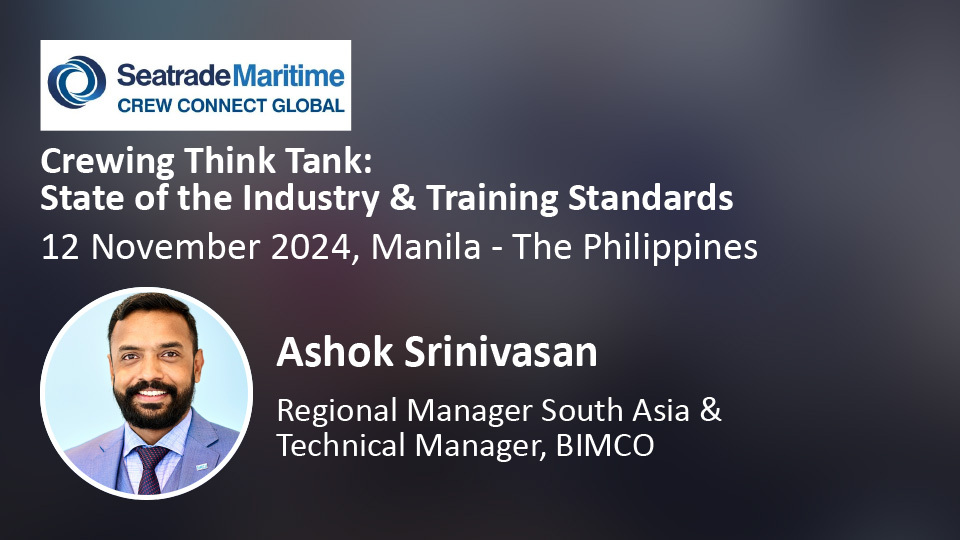US regulations affecting your ships - get the October update!
Overview
Ballast Water Type Approvals – Update
The US Coast Guard (USCG) has now issued a US type approval for a sixth ballast water treatment system: the Erma First FIT with flow rates from 100 to 3740 cubic meters per hour. 13 specific models of this system are included in the type approval.
The system uses a three-step process, consisting of filtration and electrolysis, while loading ballast water with a neutralization step when the ballast water is discharged.
In addition, the USCG has issued an updated type approval certificate to TeamTec OceanSaver AS. This updated type approval certificate covers the OceanSaver BWTS MKII ballast water management system which was originally covered under the original type approval certificate issued to OceanSaver.
It would be expected that TeamTec will be in a position to supply necessary spare parts identical to the original manufacturer and thus there will be no impact on the compliance status of already installed systems.
USCG Guidance on Alternative Planning Criteria (APC) for Vessel Response Plans
The USCG has published MER Policy Letter 01-17 which contains guidance to the maritime industry on developing and submitting alternative planning criteria as permitted under 33 CFR 155.1065 and 33 CFR 155.5067.
Vessel owners and operators are recommended to advise their Vessel Response Plan preparers of this new policy letter which does NOT create any new requirements but rather clarifies the existing policy on APC submission and approvals.
Status of Jones Act Discussions
As indicated in the last report, the US House of Representatives, Coast Guard and Marine Transportation Subcommittee held a hearing in early October on the status of the Jones Act. At that hearing, it was confirmed that there was sufficient US flag tonnage available to supply the island of Puerto Rico and it was in fact the logistics log jam preventing the delivery of much needed humanitarian relief cargoes. This was due to land based issues relating to road conditions and lack of trucks and drivers to transport the cargoes from the port areas to the more remote towns on the island. In spite of the sufficiency of US flag tonnage, the executive branch granted a 10-day waiver which resulted in a very few non-US flag vessels delivering cargoes to Puerto Rico.
CSA will continue to monitor the status in both the Senate and House of Representatives, notwithstanding bills to change the Act were introduced which did not get the sufficient support to pass through.
Plague Outbreak in Port of Toamasina
It is confirmed that there is an outbreak of the pneumonic plague in the port city of Toamasina, Madagascar. Caution should be exercised by vessels calling in Madagascar. Current information is available on US Maritime Alert 2017-006A. Though the said Alert has expired on 31 October and no new alert has been issued by the US maritime administration at the time of reporting, the links provided therein care can still be assessed for the most current information required.
Download RELATED Documents
-
Full CSA Report for October 2017 0.2 MB
Download now -
USCG MER Policy Letter 01-17: Alternative planning criteria national guidelines for vessel response plans updated 12 October 2017 2.9 MB
Download now -
US Maritime Alert 2017-006A 0 MB
Download now
Feedback or a question about this information?
VPS Bunker Alerts
Veritas Petroleum Services (VPS) publish regular Bunker Alerts based entirely on fuel samples and have kindly permitted BIMCO’s Members to access this information.
The Bunker Alerts are not intended to be an evaluation of overall bunker quality in the port or area concerned, but usually highlight a specific parameter within the fuel which has raised a quality issue.
Latest ice reports for members
Latest piracy reports
Latest industry releasable threats
ELSEWHERE ON BIMCO
Contracts & Clauses
All of BIMCO's most widely used contracts and clauses as well as advice on managing charters and business partners.
Learn about your cargo
For general guidance and information on cargo-related queries.
BIMCO Publications
Want to buy or download a BIMCO publication? Use the link to get access to the ballast water management guide, the ship master’s security manual and many other publications.
About a new business partner
We can help members check new business partners. We also help to recover millions of USD (undisputed) funds every year.





